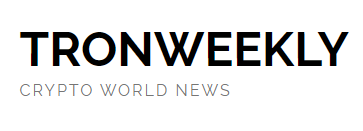You are here: Home / News / Ethereum(ETH) Boosts Network with 20% Increase in Transaction Speed

February 9, 2025 by Mwongera Taitumu
- Ethereum raises the gas limit to 36M, enhancing transaction speed.
- Validators drive network upgrade with decentralized consensus.
- Transaction fees drop 10-30% as ETH scales for better performance.
Ethereum has just made a significant leap in scalability and cost-efficiency. The increase in its block gas limit enables the network to handle more transactions, reducing fees and paving the way for a smoother, faster experience for users.
Ethereum Boosts Transaction Speed
Ethereum’s Layer 1 (L1) blockchain has completed a major update which raised the block gas limit from 30 million to 36 million units. This change increases Ethereum’s transaction throughput by 20% to enhance network performance and reduce transaction fees by 10% to 30%.
The Ethereum blockchain’s development continuously advances through validator decisions. Each validator can adjust the gas limit on their node to either increase or decrease it. They can modify the block gas limit by 1/1024% with each new block proposal, ensuring a smooth transition.
https://twitter.com/Cointelegraph/status/1888434145526956511
The increase in block gas limit was not imposed by any central authority but emerged from a community consensus. Validators have carefully discussed the adjustment over several months to balance performance and decentralization. As of now, 49.5% of validators have adopted the new 36 million gas limit.
Transaction capacity on the Ethereum network has grown by 20% after this adjustment. This increase in throughput has led to reduced congestion and lower fees. The higher gas limit enables ETH to handle more transactions and enhance the overall efficiency of the network.
How Validators Are Shaping Blockchain Speed
Although this upgrade improves transaction speed and cost-efficiency, it requires validators to have the necessary hardware. The increase in gas limit will result in more blockchain data and require higher storage capacity. Validators must ensure their systems can handle this extra load without compromising decentralization.
The slow increase in gas limit comes from better computer hardware technology. Over the years computers have gained more advanced computing and storage abilities. The expansion matches Moore’s Law which states hardware will double its capacity every two years to enable ETH to maintain its level of performance.
Validators collaborate to boost Ethereum’s capabilities while decreasing its risks. To prevent disruption to small nodes or loss of decentralization, Ethereum implements slow upgrades instead of fast shifts. The gradual expansion supports reliability while maintaining high performance and balanced operations.
Ethereum keeps updating its gas limit as part of its ongoing efforts to make the network better. The validators and community members work together to develop a blockchain solution that handles more transactions efficiently. These improvements enable the development of decentralized apps and smart contract functionality.

 6 months ago
38
6 months ago
38




 English (US) ·
English (US) ·